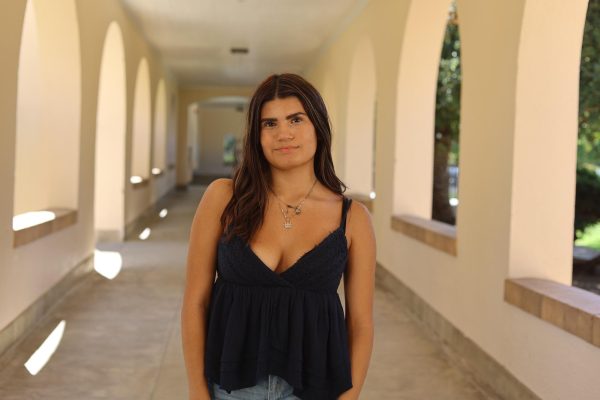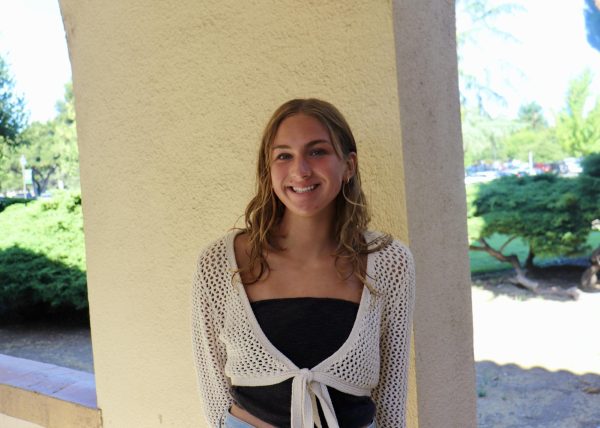As one of the top public school districts in the country, Palo Alto Unified School District prides itself on being a diverse and inclusive community. Yet, as many students navigate their education socially and academically, they may need help finding a foothold in accommodations, resources, and support in the highly competitive atmosphere.
According to the Cleveland Clinic, the term ‘neurodivergent’ describes people whose mental differences affect how their brains work. This includes, but is not limited to, autism spectrum disorder, attention-deficit hyperactivity disorder (ADHD), dyslexia, intellectual disabilities, and mental conditions like bipolar disorder and obsessive-compulsive disorder (often called OCD).
Some think the term ‘neurodivergent’ has a negative connotation; however, being differently abled does not directly lead to less capability. Instead, it means that the individual may need different accommodations to be successful. Palo Alto High School English teacher Josh Knowles-Hinrichs often discreetly addresses his students’ needs to combat this worry.
“It’s really about meeting the students wherever they are socially or emotionally,” Knowles-Hinrichs said. “There are certainly students who have accommodations and are reluctant to use them. A lot of it [hiding accommodations] is because of fear of social repercussions or being perceived as getting something that others aren’t. For me, a lot of this is trying to shift some of that outside of class so it’s not as conspicuous.”
Despite the efforts of Knowles-Hinrichs and others, there is a preconceived notion in today’s society that neurodiverse people are less likely to succeed than neurotypical people. However, according to special education teacher Liz Mueller, this stereotype is unfounded.
“People have different strengths and weaknesses,” Mueller said. “There are plenty of [neurodiverse] people in your AP classes and Ivy League colleges.”
Although neurodiverse individuals are as capable as their neurotypical peers, Knowles-Hinrichs has witnessed many forms of discrimination against neurodiverse students. He believes that discrimination against neurodiverse individuals uncovers more about how the neurotypical world treats individuals who don’t fit this norm.
“It [discrimination] reveals a general lack of understanding or empathy on the part of the person using the word,” Knowles-Hinrichs said. “Oftentimes, it [discrimination] takes the form of harassment, and they can be constantly pointing out to someone that they’re not doing something that fits a norm.”
Throughout Paly’s history, there have been many cases of discrimination against neurodiverse students. Campus Supervisor Carl Hubenthal, who graduated in 1992, was diagnosed in elementary school with ADHD, dysgraphia, scotopic sensitivity to light, and exceptional learning disabilities in handwriting and math. Because of this, he was subjected to many acts of discrimination during his childhood.
“When I was younger and going through elementary, middle, and high school, there was a huge stigma about it [neurodiversity],” Hubenthal said. “People were afraid to be associated with people in Special Education or around it.”
Currently, Hubenthal is a staff member at Paly and now looks back on his experience as a student.
“I feel like it [discrimination] is a lot less now, but students don’t always tell us what’s happening,” Hubenthal said. “But I certainly didn’t tell people what was going on when I was a kid.”

Today, Paly tries to be an incredibly supportive school that aids and uplifts neurodiverse students, according to “The Promise ” on the PAUSD website, stating its focus area of special education and inclusion. Senior Juan Pinto has worked with case managers and support staff all four years at Paly, and his experience has been very positive.
“It’s one of those schools where they [staff members] helped me because I met new people and some friends who care about me,” Pinto said. “And they’re friendly. Also, I have four amazing case managers who have supported me for all four years—I’m improving a lot.”
On the other hand, students today use terms such as ‘sped’ or ‘autistic’ as a way to insult others. Mueller has noticed how insults perpetuate negative stereotypes about the unique education community.
“I don’t think the R-word has been effectively reclaimed,” Wu-Chin said. “I don’t see why you would say it if it hurts people’s feelings.”
To combat offensive language, sophomore Surya Gannerkote believes understanding a person and seeing things from their perspective can help reduce the use of these words.
“Empathy is a big one [solution],” Gannerkote said. “Understanding where other people are coming from and how they function helps understand ‘where everyone is’ in terms of their mental state and how they process things. It’s a big thing to try to understand and show some of that [empathy].”
Additionally, creating an empathic community assists neurodiverse individuals’ likelihood of finding a path to success. School set-up, from the teaching style to the school community’s values, plays a significant role in supporting neurodiverse students.

Despite stigma promoting otherwise, neurodiverse people who don’t follow the norm in a classroom setting can succeed in many other career paths. Although classroom skills help extensively prepare students for the professional world, essays and grades are not a holistic reflection of one’s potential.
“I don’t think it’s a learning disability; I think it’s a difference,” Hubenthal said. “When I got out and could do different jobs that suited me, I blew everyone away. I was much better than other people. When I did construction, I could pay attention to 30 different things at once, and the other people who didn’t have ADHD thought I had a superpower. Here, having this ‘learning disability’ is an advantage in the job that I have.” Neurodiversity can also impede communication between students. Sometimes, it might be more difficult for neurodiverse students to understand or communicate concepts to others. As Gannerkote suggested earlier, patience and empathy are essential in these cases.
“I have trouble thinking of stuff to say and what is correct to say,” Pinto said.
Often, discrimination and impatience can take the form of judging others for their abilities, and in severe cases, it can take the form of harassment or bullying.
“[People] judge others and treat others differently just because they have a certain disability,” Gannerkote said. “[Discriminators] refuse to talk to others because they have a certain disability.
Additionally, discrimination can look like avoiding neurodiverse students– this form of discrimination is much more prevalent and can sometimes be implicit. This can look like one student being left out of a discussion or group.
“[On the bus to school,] I usually talk to the bus driver. That’s the only person I’ve talked to or one friend. On some days, my brother rides with me on the bus, so I have someone to talk with.”, Pinto said.
Discrimination can also occur when teachers use students as a non-example for desired classroom behavior. Many neurodiverse students are subjugated to this form of discrimination since typical classrooms are not designed with neurodiverse needs in mind. The discrimination can still have an impact from childhood to adulthood. Hubenthal looks back to when a teacher used his struggles as an example to his classmates.
Some students find communicating with teachers and support staff difficult. Teachers may be hesitant to accept accommodations due to unclear communication, but there are many examples of positive communication between teachers and students.
“In my experience, it’s all been good in our immediate community,” Wu-Chin said. “But, I know that the way things are here is unique. Also, I’ve been lucky to have teachers who are understanding and communicate with me. But, I know other people who have teachers who don’t.”
According to California law, teachers must uphold students’ Individual Education Plans (IEPs) and 504 plans with the accommodations that are given. Some Paly students feel that teachers are fair about accommodations and feel supported by the community.
“In my experience, all my teachers have been completely fair about accommodations,” Gannerkote said. “I have an Individual Education Plan. Every single one of my teachers has respected it.”
Paly’s support system for getting a 504 or IEP plan is more accessible than at many other schools.

“It was really easy for me to get a 504 and then an IEP,” Wu-Chin said. “They [Paly administrators] were really good about it; they were cooperative. But I know other schools aren’t as good at that; there are a lot more hoops you have to jump through. But it’s all been good in our immediate community.”
Regardless of whether students have a 504 or IEP Plan, teachers can still support individuals’ needs. Many Paly teachers try to adapt their curricula to accommodate each student.
“Not everybody is starting at the same point regarding background knowledge for what we’re doing,” Knowles-Hinrichs said. “Similarly, not everybody is starting on the same point regarding skill development for what we’re doing, so I have to meet them where they are. I try to explain to the students that there’s a difference between equality and equity.”
Sometimes, communicating with teachers about accommodations can take time and effort. Teachers have so many students each year that it can be hard to keep track of every single accommodation for each student. In situations like these, communication is essential.
“[Usually], if a student is denied an accommodation, it’s just because of a miscommunication,” Mueller said. “I work with my students on their self-advocacy skills. I might coach the students and help them write an email themselves, or I might be the one to intervene and contact the teacher directly.”
It is often difficult for students to accept help in advocating for themselves, which is essential to receiving support in school.
“You have to be able to let those things slide off you and still move forward because it’s about your future,” Hubenthal said. “Being able to get that resilience back, in order to accept help and then blossom and flourish. That’s what I hope for everybody.”
equity in education pdf










